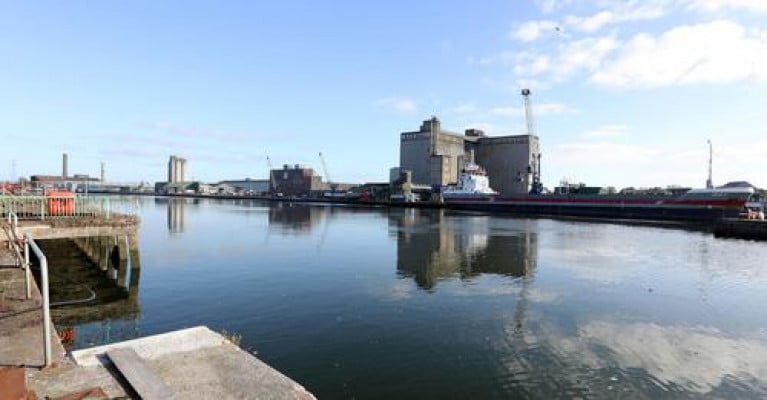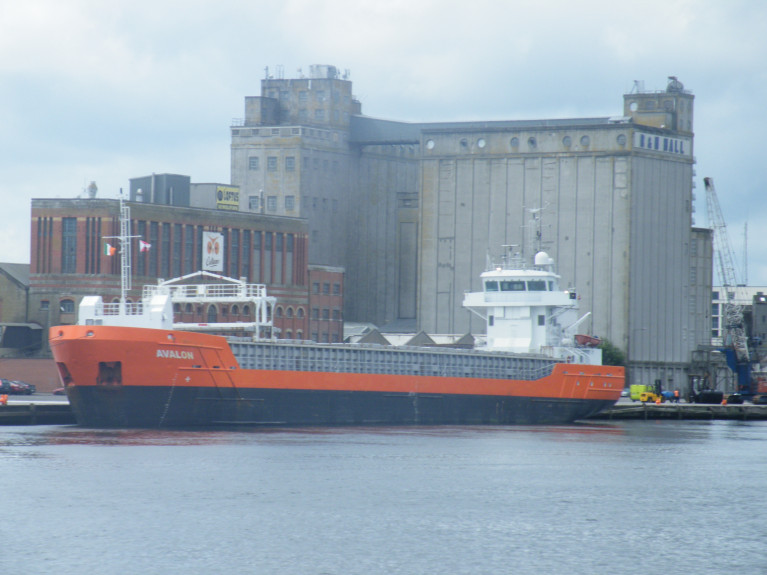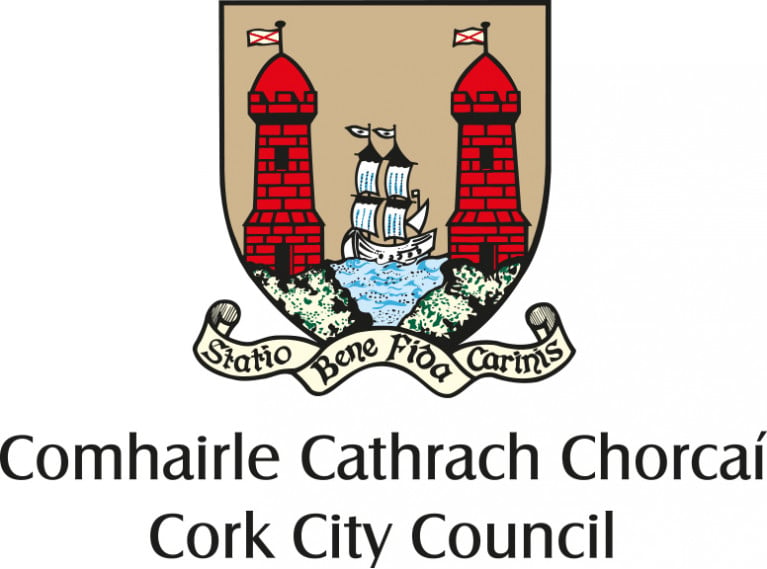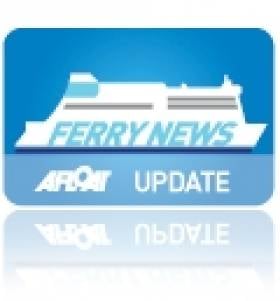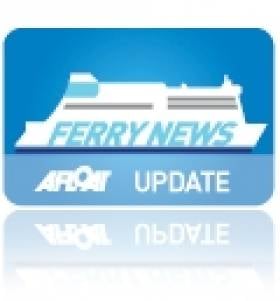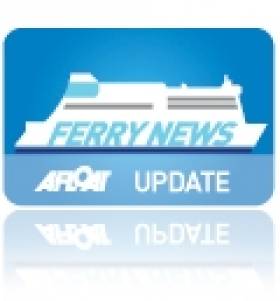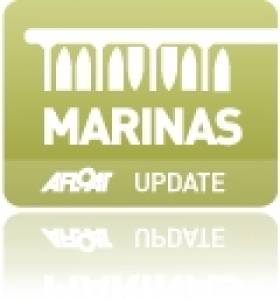Displaying items by tag: Cork City council
Port of Cork and Cork City Council Reach 'Agreement in Principle' on Future Sale of City Quays
As the Irish Examiner reports, Cork City Council is set to spend millions buying the Port of Cork’s city-centre quays to help facilitate one of the largest docklands regeneration schemes in Europe.
The local authority and the commercial semi-State company have reached an “agreement in principle” that will see the council acquiring around 1.5km of quayside along the city's north and south docks following the relocation of the port company’s city centre operations to its expanded facilities downstream at Ringaskiddy.
Neither side has commented on the purchase price but it is understood that the figure will run to several million euro — significantly below the estimated €26m that was offered by the city at the height of the property boom when the port was planning its relocation downstream.
The agreement, which it is understood was signed off last Friday, now paves the way for detailed negotiations between both sides on the heads of the agreement.
Both parties have agreed to establish working groups to hammer out the detail.
Much more from the newspaper here.
In addition below is a Statement from Conor Mowlds, Chief Commercial Officer, Port of Cork Company which was issued yesterday (Wednesday 25th May 2022)
Contrary to reports in the media today, the Port of Cork Company (PoCC) has not signed a contract with Cork City Council to acquire the Port of Cork City Quays.
As per our media statement yesterday, we have agreed to enter into talks with Cork City Council to develop a Heads of Agreement, to eventually relocate port activity downriver from the City Quays. A key point of this agreement will be to ensure that PoCC continues to facilitate trade within the City Quays, and we wish to reassure our clients, our staff and stakeholders that there will be no handover of the quays until proper infrastructure, including the construction of the M28, is in place.
The Port of Cork Company maintains its support for the Cork Docklands redevelopment potential. It remains an objective that all Port City Centre business will relocate downriver towards Tivoli, Marino Point and Ringaskiddy, however this future development will only take place with consultation with all relevant stakeholders.
Millions is to be spent by Cork City Council to buy the Port of Cork’s city-centre quays to help facilitate one of the largest docklands regeneration schemes in Europe.
The local authority and the commercial semi-State company have reached an “agreement in principle” that will see the council acquiring around 1.5km of quayside along the city's north and south docks following the relocation of the port company’s city centre operations to its expanded facilities downstream at Ringaskiddy.
Neither side has commented on the purchase price but it is understood that the figure will run to several million euro — significantly below the estimated €26m that was offered by the city at the height of the property boom when the port was planning its relocation downstream.
The agreement, it’s understood was signed off last Friday, now paves the way for detailed negotiations between both sides on the heads of the agreement.
Both parties have agreed to establish working groups to hammer out the detail.
It is understood that the deal will only be triggered when the port company relocates all of its city centre operations to Ringaskiddy. The timeline for the completion of that relocation is unclear.
The south docks became a go-to destination during lockdown, with hundreds of people regularly socialising on Kennedy Quay.
The gatherings highlighted the area's public amenity potential but the company had to fence the area off on safety grounds.
Further details from the Irish Examiner which has on the waterfront property development.
Last November, Afloat reported on another Cork City Docklands project when O’Callaghan Properties announced a planning application for a €350m mixed development scheme.
The scheme on the south docks is to repurpose the famous Odlums building and the proposed demolition of the landmark R&H Hall silos.
Cork City Council Motion Seeks Ban on 'Dangerous' Inflatable Craft
A motion has been put before Cork City Council seeking a ban on 'dangerous' inflatable craft.
It has been lodged by Cllr. Ted Tynan on behalf of the Workers Party: "In light of the recent rescue by fisherman Gus O'Donovan and crew member Mathew Byrne of two men on an inflatable craft in Crosshaven, I want to bring to the attention of the Council the dangers of such craft on our shores. This is just one of several water-related recent incidents that could have resulted in tragedy. I welcome the call by Chief executive of Water Safety Ireland, John Leech, for a ban on inflatable craft, in order to prevent a tragic outcome in our waters.
"Referring to 'supermarket inflatables', Hugh Mockler, Deputy, Launch Authority at Crosshaven RNLI, where Gus has been a crew member, described these craft as “downright dangerous”.
"I, therefore, call on Cork City Council to introduce the necessary by-laws to ban the use of inflatable craft on our shores and beaches".
Cork-Swansea Ferry Firm Must Secure €1m
#FERRY NEWS - The operators of the Celtic Sea ferry route between Cork-Swansea need to secure over €1m in investment today in order to save the company after being thrown a €300,000 funding lifeline by Cork's local authorities.
Cork City Council agreed last night to invest €100,000 in the Fastnet Line, bringing its total investment in the company to €365,000.
It followed a 90-minute behind closed doors presentation by Fastnet Line's acting chief executive officer, Pádraic O'Kane. He is due to meet Enterprise Ireland this morning to discuss further investment. He declined to discuss the amount involved, but it is understood to be in the region of €400,000.
Finance Wales will await the outcome of those talks before it agrees to pump up to €800,000 in to the firm. For more about this story in today's Examiner click HERE
€500k Sought to Restart Cork-Swansea Ferry Link
#FERRY NEWS - Approximately €500,000 is to be sought from three local authorities in the south-west region so to help restart the Cork-Swansea route which was served by the M.V. Julia (1982/22,161grt) until sailings ceased in November last year.
Representatives from Fastnet Line Ship Holdings Ltd are expected to attend a special meeting of Cork County Council next Monday at which they will outline a business plan for the company, which is in examinership.
They will also address a scheduled meeting of Cork City Council later the same day and are expected to communicate their request to Kerry County Council shortly.
For more about this story in today's Examiner click HERE
Restructured Fastnet Line Reduce Year Round Service to Seasonal Schedule
The discontinued winter sailing schedule for this year is also expected not to be repeated during October 2012-March 2013. Fastnet Line's decision to make the Celtic Sea route into a shoulder season and summer only service follows a similar path taken by Stena Line which withdrew Dun Laoghaire-Holyhead (HSS) sailings in mid-September, for report click here. The central corridor route is due to reopen sometime in April or May 2012.
Cork City and County council and Kerry County council have provided €700,000 to support Fastnet Line and yesterday they announced an additional €150,000 in co-funding for the period of the examinership. In order to stabilise finances the ferry company are to radically reduce passenger capacity of the Julia (see photo) from 1,500 down to 950. This is in line with the capacities of the Julia serving 'night' sailings.
She has a crew predominately from Eastern Europe and Irish and UK deck officers. The Bermuda flagged, Hamilton registered vessel is currently berthed at Ringaskiddy Ferry Terminal, Cork Harbour. At 154m she is the largest ferry to date capable of berthing in the limited confines of the swing basin in Swansea and with a draft of 5.8m in a port which is subject to a large tidal range on the Bristol Channel.
Operating costs on the 10 hour service has been severely hampered by continuing increases to world oil prices. From the year 2010 to this year, fuel costs rose by 27% and almost 50% from the original budget of 2009. The company claims that each crossing amounts to €18,560 alone in fuel costs.
Fastnet Line to date has carried 150,000 customers, of which 75% have originated from the UK market, generating on average €350 per person (€40m approx) exclusive of fare and on-board spend. This crucial market is core to the success of the company's direct 'gateway' route to scenic south-west Ireland, with Swansea connected to the M4 motorway linking midland population centres and London. The operator claims a saving of 600km driving based on a round trip compared to using rival ferries running on routes to Rosslare from Pembroke Dock and Fishguard.
Since the reinstatement of the service in March 2010, after Swansea Cork Ferries pulled the Superferry (photo) off-service in 2006, the loss to tourism generated revenue on both sides of the Celtic Sea was estimated to be £25m per annum according to the Welsh Assembly and a similar figure recorded in the Cork and Kerry region.
The company also outlines the reduction in carbon emissions saved from operating the only direct service specifically connecting the regions of Glamorgan and Munster. Some 500,000 freight miles alone were saved in the Welsh region since the service started instead of using alternative route running from Pembrokeshire ports.
- Cork Harbour
- west cork
- port of Cork
- Celtic sea
- Cork City council
- Fastnet Line
- M.V. Julia
- M4 motorway
- Kerry
- Irish High Court
- Stena Line
- Ports and Shipping News
- cork harbour news
- Ferry news
- HSS
- Welsh Assembly
- Cork County Council
- Associated British Ports
- ABP
- Ringaskiddy Ferry Terminal
- M.V. Superferry
- SwanseaCork Ferries
- SCF
- Fastnet Line Group
- Kerry County Council
- HSS Dun LaoghaireHolyhead sailings
- Glamorgan
- Munster regions
- Bristol Channel
- Bristol Channel tidal range
- Swansea Port
- Irish tourism sector
- Pembroke DockRosslare
- FishguardRosslare
Proposed 800 berth Cork Marina Would Rival Dun Laoghaire
The redevelopment of the 24-acre Marina Commercial Park in the heart of Cork city's docklands is expected to create 5,000 jobs once completed.
City manager Joe Gavin said: "This 24-acre site is at the heart of Cork's docklands and the announcement is a crucial step in realising Cork City Council's vision for the whole docklands area."
"It's a fantastic story in these bleak times and of course it would greatly add to boating in the south. It's also an example to the rest of the country of the opportunities that lie in city waterways", said David O'Brien of the Irish Marine Federation.
The proposed development features:* More than 800 apartments, providing homes for up to 2,230 people.
* A marina where they can park their boats.
* A range of community amenities.
* A visitor and science centre, the Ford Experience, which is expected to attract up to 300,000 visitors annually.
* A new central plaza to provide a hub for the community, including a creche and library.


























